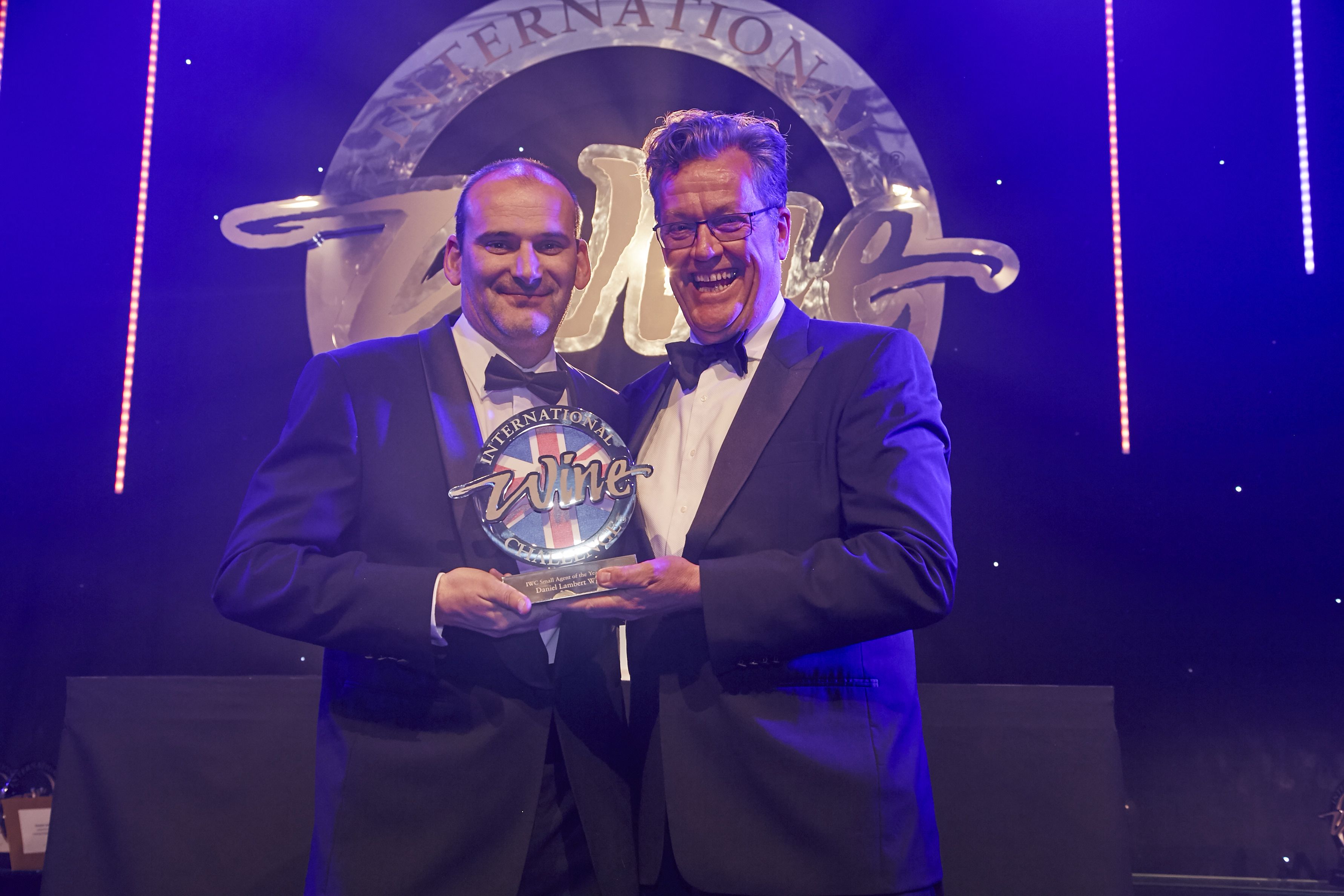Step by step Daniel Lambert has built up his wine distribution and import business into a multi-million pound operation, bringing in close to 3 million bottles a year to the UK. Yet remains a fiercely independent company. You can read the first part of our interview with him on the impact of Brexit here.
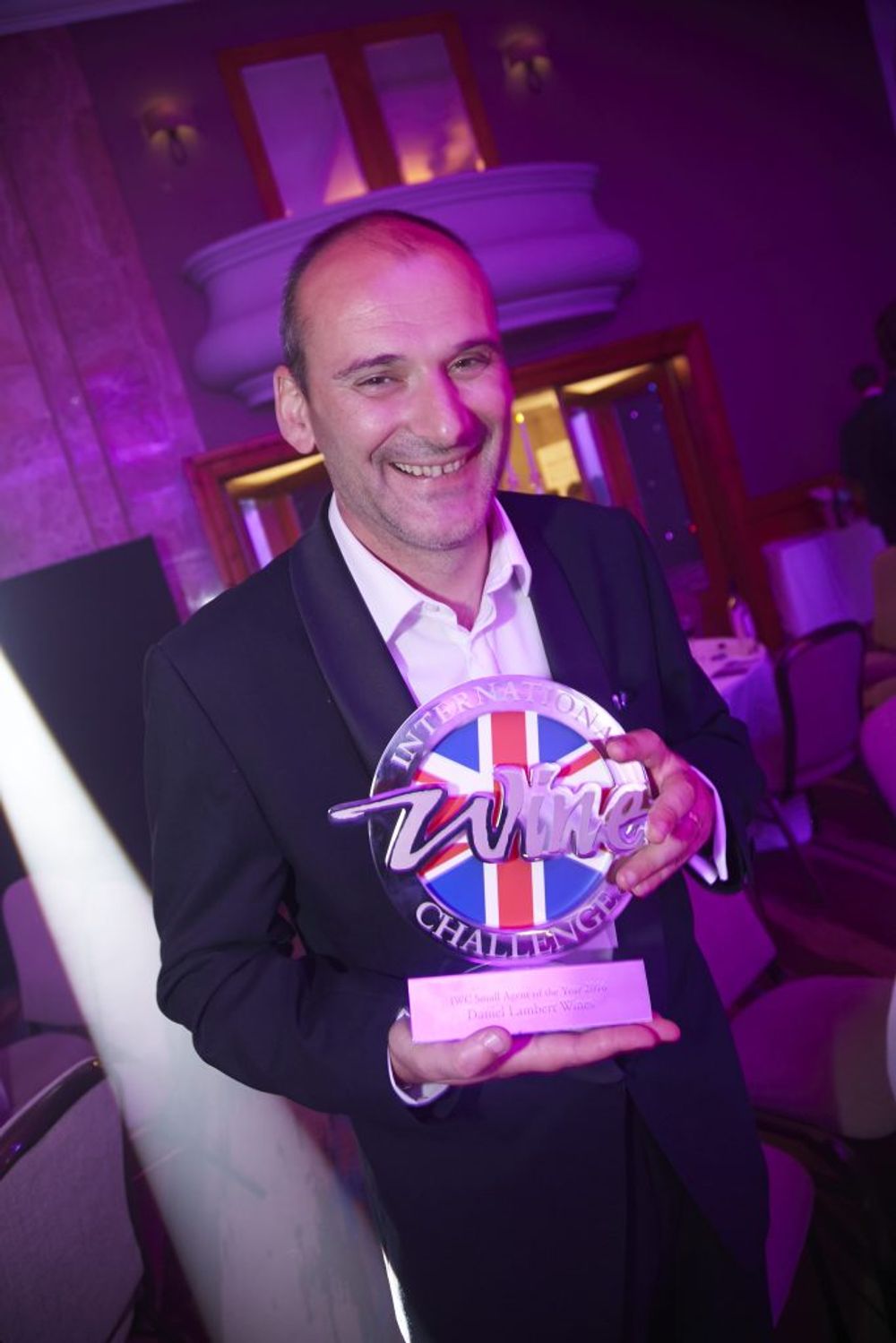
Daniel Lambert has picked a fair few awards in his time but is particularly proud of the Small Agent of the Year awards he won from the IWC in 2019 – and is still the holder of the award
Daniel Lambert admits he was quite happy having far more than a good time working in a nightclub in Guildford in Surrey when his father suggested to him that he might want to think about a more serious career.
In fact he did more than suggest. He pushed him in the direction of Lambert’s uncle who happened to work as an export director for French wine company in Bordeaux. It was through his contacts that he was able to set himself up, in 1992, as a sole trader wine importer by introducing him to producers – one in Alsace and one in Bergerac. What’s more he also helped find him his first customer, a small hotel and restaurant in Harrogate, the Ascot House Hotel, who for years would order, every month, a pallet of wine – and away he went.
“I started off in 1992 with literally £5, a second hand fax machine and a manual typewriter. But when you are 21 you think you can do absolutely anything,” says Lambert.
Everything he has learnt along the way since, he has had to find out for himself. Mistakes – and plenty of them – and all.
Including, he says, innocently ringing up the MW Spanish wine buyer for Waitrose a few months into running his business and talking him through a new wine he had picked up from Spain, even asking him if he had heard of the region. “I did not even know what a Master of Wine was at that stage,” says Lambert. “He was fantastic about it. He said I’m familiar with the region’.”
Lambert says a big step change for his business came in the late 1990s when he picked up the exclusive distribution of Bordeaux producer Chateau Filhot that was looking for an alternative to the La Place system. They are still working together today.
“From that the ball started to move a little quicker. We got “Chateau Filhot” to a point where it was being distributed in all the major chains, from Sainsbury’s to Oddbins, Unwins, Thresher, Majestic, M&S and Waitrose. It was even listed by the LCB in Canada to a point we were selling around 130,000 bottles a year in its heyday.”
Taking notice

The Calmel Joseph winery in Languedoc has been a vital partner for Lambert’s business
It was after the success he had with Chateau Filhot “that people started to take notice of what we were doing” and he turned to building up his Burgundy business that has gone on to become such a cornerstone of the company he has today. He says he is particularly grateful to Henry Newman for introducing him to Patrice Tournier, who is still his main Burgundy contact today.
The major Languedoc producer, Calmel & Joseph, came on board in 2003 (under its previous owners) and have proved to be another vital strategic partner in helping Lambert build up his range, network and credibility.
“From there we got more and more interesting agencies. So now we have got people like Enate (Somontano, Spain), Trefethen Wines ( Napa Valley), André Lurton (Bordeaux and international), and Munari (Victoria, Australia) and Hollick (Coonawara, Australia).”
He says he has not got to a point where it is actually “quite easy” for him to pick up new agencies as and when he needs them, the problem is “ensuring we bed them down properly and those agencies get the full exposure that they deserve”.
“But it’s been an interesting ride, starting from nothing to a point where we will be just shy of £3m turnover this year. That’s what you can do in three decades.”
Ups and downs
Not that it has been all plain sailing. Far from it. As a sole trader he has arguably felt the waves of recession harder than others, and has been particularly badly hit by the failure of some of the high street chains, like Thresher and Oddbins, where he had been doing so much of his business – including what he claims was 70% of Thresher’s Wine Rack fine wine range in 2009 when it went under, around £1.2m of business, and when Oddbins collapsed it meant he lost £1.6m sales of French wine.
Each time he has had to re-group and go again. But what has helped the business go through those bad hits, he stresses, is he has always kept a close knit team, and his costs as tight as possible. He currently has a full time team of five, including himself.
Under the radar
(Daniel Lambert picking up his awards at the IWC 2019 ceremony)
Being based in Wales has its advantages and disadvantages, says Lambert. Good in that it can quietly go about its business a little more under the radar than some of his higher profile competitors, but equally “not being part of the London set” means he can also “get forgotten about” too.
“We are slowly but surely building up to be a nice place to be. We always work to be just about in profit and that’s what we are. Which is the main thing.”
He adds: “Nobody does what we do in Wales in terms of being a pure agency and not wholesaler business.”
Not that he claims to have everything covered as he is not in the position, for example, to serve all the on-trade in Wales. He simply does what he can.
But he is, though, very proud of the national awards he has won. The real step change came in 2013, he says, when he beat all the big London wine merchants to win the IWC Specialist Burgundy merchant award.
“That’s when people really sat up and wondered how has he managed to do that? We took it away from all the London merchants and I think a lot of them could not quite believe that happened. That really put us on the map. Then two years later we got the IWC Loire Specialist award.”
These awards were then surpassed in 2019 when Daniel Lambert won the Best Small Agent of the year awards and claims to have been shortlisted in that category more than any other agency business since 2015.
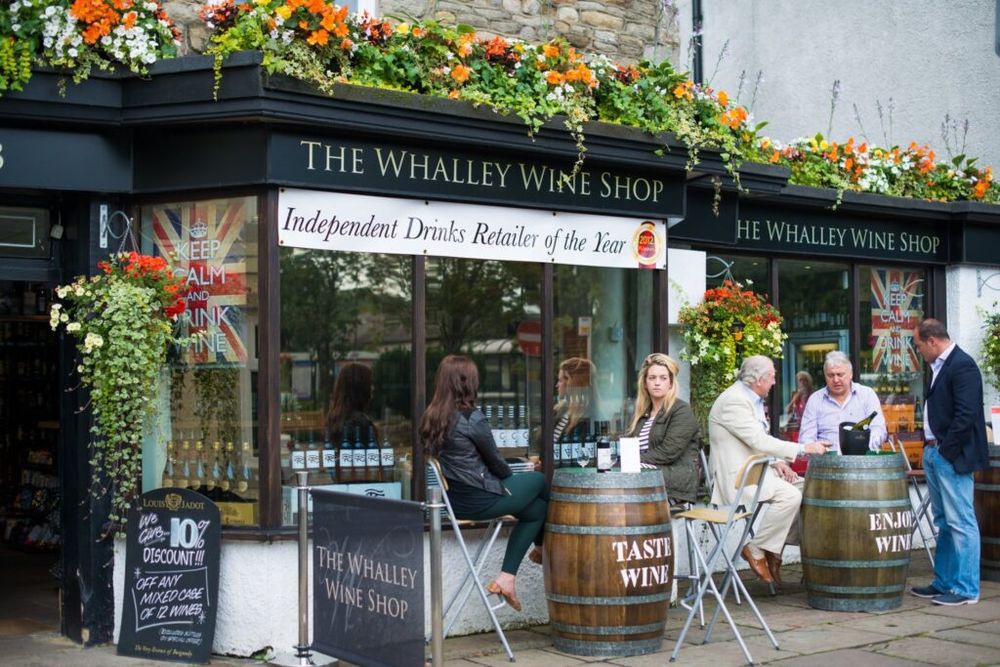
Lambert has built up strong ties with leading independents like Whalley Wines in Lancashire
“We are known by people who are looking for interesting wines. Like Whalley Wines, Cheers Wines, or St Andrews in Scotland – the guys who are always looking for that next new thing. It’s interesting they are winning the awards for their regions as well. Clearly the people who are judging these awards know what we are doing.”
Choosing the right agency
So if his reputation rests on the quality of the producers he is importing, how does he go about choosing the one to work with?
“It has got to be representative of the place that it comes from,” he stresses. “That’s why with every wine I have physically visited the property. I’ve understood the terroir of where it is coming from and what it’s trying to do and what it’s trying to be. My palate is very much a French palate, but understanding an Anglo Saxon market, which is particularly relevant when bringing in wines from the New World. The wines I have from Australia and California do have an Old World feel to them and that’s why I think people like the stuff I do from those countries.”
Equally the wines he imports from France are not suited to the French market, but to a British wine buying public, with more emphasis on fruit than structure and whether it goes with food.
Overall he has three rules he applies when taking on a new producer partner.
Firstly they have to be a family business. That’s when you get the real passion, desire and drive, he says. Yes, negociants and co-ops might be able to supply more wine at a better price, but they often lack that raw passion, he explains.
“There is no-one really driving the business. If it is a family there’s this willingness to want to make their product – that they are proud of – work. We have to filter through what they are trying to achieve.”
Yes, he works with some major wine companies, like Lurton, but strip it back, he stresses, and it’s one family that is driving it all. “They have that family ethos which is really important for me as I am a family company. We are in a small team and we are only interested in trying to put the best foot forward.”
Secondly he will always look at the quality of the wine first and not the price. He gives the example of a new agency he is taking on from a region in Germany which he believes is the best quality he has tasted from that area. He admits they “need to sharpen their pencil” when it comes to the pricing, but that is a conversation they can have once they start working with them.
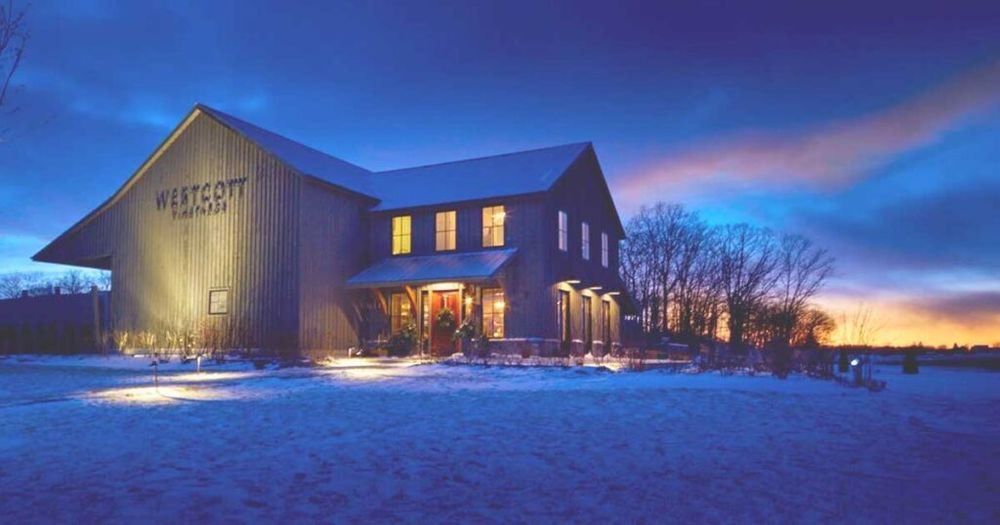
Finding wineries such as Westcott Wine in Canada is very much what Lambert is all about
“We make sure that what we are bringing in is not only going to compete with our competitors, but is also something that people can benchmark against in terms of quality. A good example of that is what we have done in Canada with Westcott Wines. We are doing really good business with them with independents.”
The third criteria is managing a producer’s expectations. Which means sitting down and asking them what it is they want from “this relationship”. “If you want to be in Tesco then I am not your guy. But if you want to be in Waitrose, Marks & Spencer, on British Airways or in the independent sector, then I am your guy.”
Working with the right customer
Lambert is also very focused on the kind of customer that is most likely to do well working with his business.
Which means he is always on the look out for “vibrant independent wine shops that are looking to do interesting stuff and think outside the box”.
Who he is looking to avoid are what he terms as the “lazy independents” who will buy a “buy a pallet from Boutinot, a pallet from Liberty, and Hallgarten and that’s their wine range”.
“That’s not the sort of people we want to be working with,” he says. “We want to be working with people who are buying four or five wines from us, 10 from Liberty, 10 from Boutinot, 10 from Thornam Hunt, and other distributors and have put together a really lovely range. Those are the sort of people we will hunt down.”
“A good example would be Tom (Jones) at Whalley Wine Shop or Gemma ( Welden) at The Jolly Vintner. They are two really good examples of people who have really pushed the boat out to go and find interesting wines and are not just putting all their eggs in one basket.”
He also got to a position where he can pick and choose who he works with. In 2013, for example, he admits to have a “cull of customers” to get rid of all those businesses – around 35 – that would not agree to a payment plan. Not only was it a loss in revenue but it was taking him so much time chasing people up.
Regardless of who any new customer is they will be asked to pay for the first couple of orders up front and then move them to initially 30 day credit terms up to 60 days. If they can’t stick to the initial 30 days they will quickly be moved on. “But most of our customers are a dream to work with and are on 30 to 45 or 60 days,” says Lambert.
No fools…
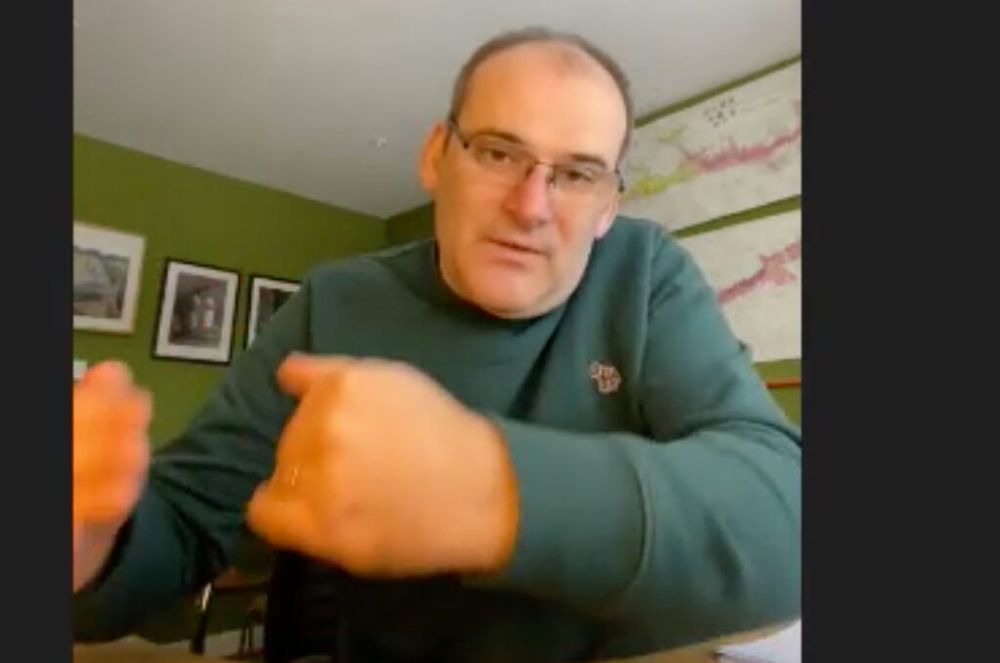
Daniel Lambert has become the voice of the wine industry – at least the wine importer side of it – with his social and national media coverage on the implications of Brexit
From a journalist’s point of view Lambert has the uncanny knack of being able to speak in perfect soundbites and does not suffer any fools. Which also sum up his business strategy very well too.
“My company ethos is, and will continue to be, I will never ever sell a bottle of wine to the Big Four…I don’t like the way they work in terms of how they squeeze the industry.”
He adds: “It’s about having morals and setting the bar. You have got to respect the people you work with and you have got to respect the people you supply and I try and make that a two way thing with everyone.”
Which is why he is so angry with the way the government he feels is treating the wine industry over new Brexit trading rules and is willing to stand up and fight them every step of the way.
“If someone tries to me fuck me over, I will happily rip them to pieces, as I’m trying to do with the government right now. The industry needs to stand up for itself, but unfortunately we haven’t got enough people who are prepared to do that as they are worried about the consequences. Which I think is a great, great, great pity. I think the industry is letting itself down.”
Growing internationally
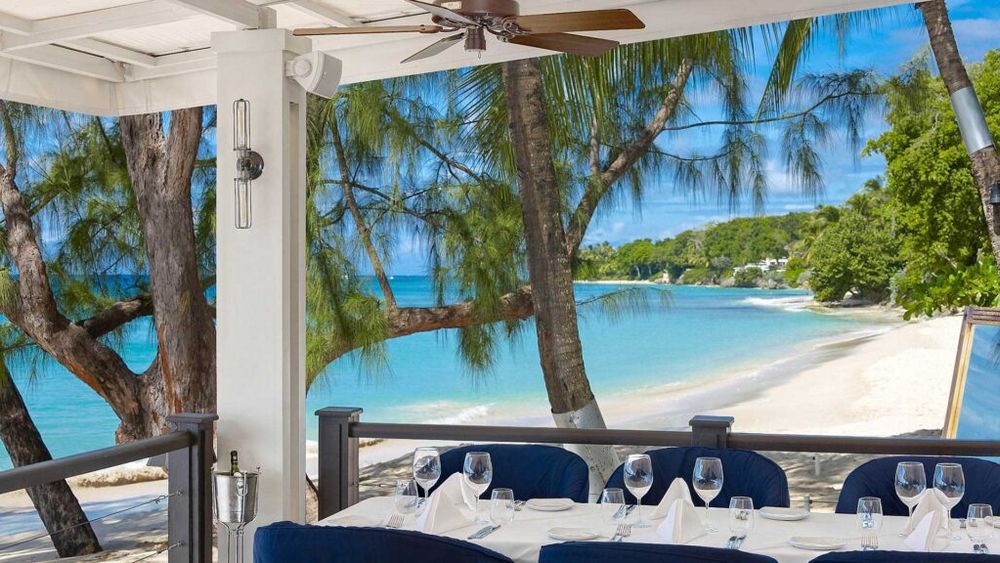
There’s food and wine pairing…and then there’s food, wine and beach pairing – Barbados style
He might be frustrated about the current Brexit trading restrictions, but it has not put him off trying to run an international business. In fact he has serious plans in the coming years to really push the export side of Daniel Lambert Wines.
A plan that could actually see him go and live in France, thanks to the fact he has a French passport courtesy of his French born father, and run his business from there.
He has already had great success exporting wines to the Caribbean, and, in particular, Barbados where he saw a huge opportunity a few years ago to step in and offer a far more credible wine offer than what was available then.
“It might be an island in the middle of nowhere, but actually it’s a bit of a gem. It has three importers, but it has 55 luxury restaurants at Michelin standard supplying premium product to A star category of people who go there. They don’t want to drink Jacob’s Creek. When I first went there in 2013 I was aghast at the wine quality levels. I could not believe how poor it was. But it was because nobody had taken the island seriously at all. You had negotiant wines there that nobody else in the world was buying and that was about it. It was being dumped in Barbados.”
So he quickly saw an opportunity to plug that gap and give the importers there an alternative supply.
“I basically went in there and really shook things up,” he says. “Properly shook things up to the point that Barbados is now a destination market when it comes to wine. I have dramatically changed that market. Single handedly. And I have really enjoyed doing it as well. It’s probably the best challenge of all the challenges I have set myself.”
Eight years on he is now working with two of the importers to supply all the restaurants but also the villas business as well. He is proud to say the wine lists are now full of grower and single family estate wines.
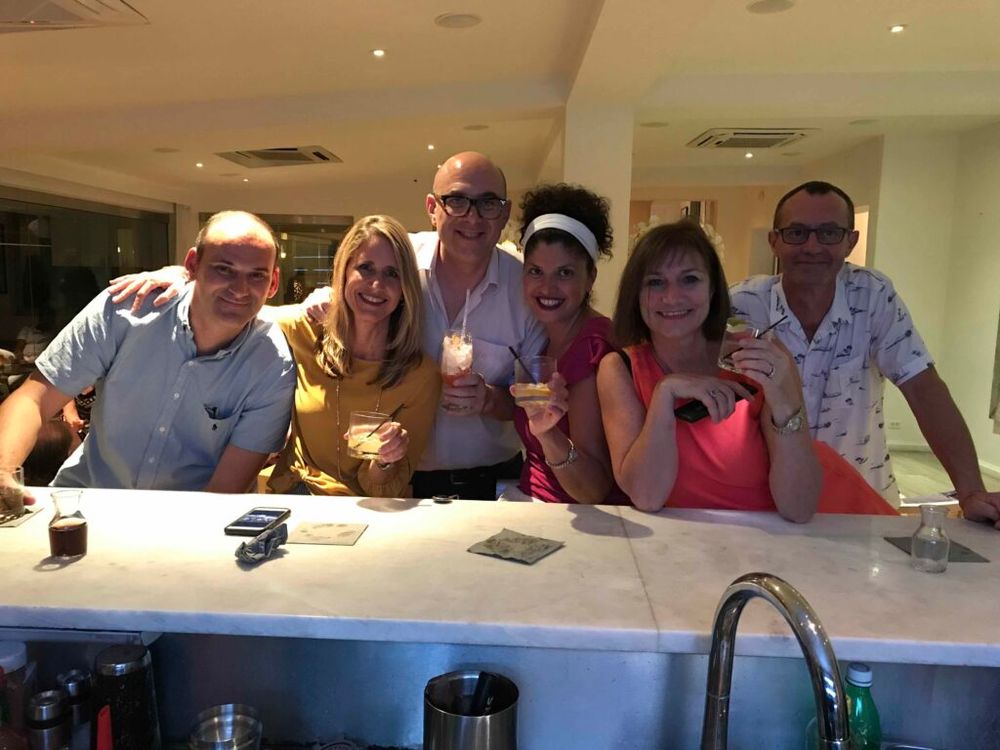
Daniel Lambert with a group of his best selling customers who he invited on a trip to Barbados
It now means he is sending half a container to Barbados every four weeks. “I sell more wine in Barbados than I do in London,” he adds.
With that success under his belt he is keen to do more export and open up other markets. He thinks there are good opportunities for his New World wines in France, Netherlands, Belgium and Ireland from 2022 and already exports to Jersey.
Having his own bonded warehouse in Wales could be a key advantage in that, he adds, as he can package and ship the wines into the EU from there, he says.
That’s when he might be based in France and co-ordinating Daniel Lambert Wines from what he hopes will be his new home in the Languedoc. “I have a very sweet spot for the Languedoc out of all the wine regions in France,” he says.
“It will be a slow burn and it may not succeed but if you don’t try, you don’t know. I certainly have the agencies and the know-how to make it happen.”
One things for sure it won’t be long before the local and even national French authorities know they have got a new wine operator in their midst as and when he does go.
- You can read the first part of our interview with him on the impact of Brexit here.
- To contact Daniel Lambert you can do at daniel@daniellambert.wine.
